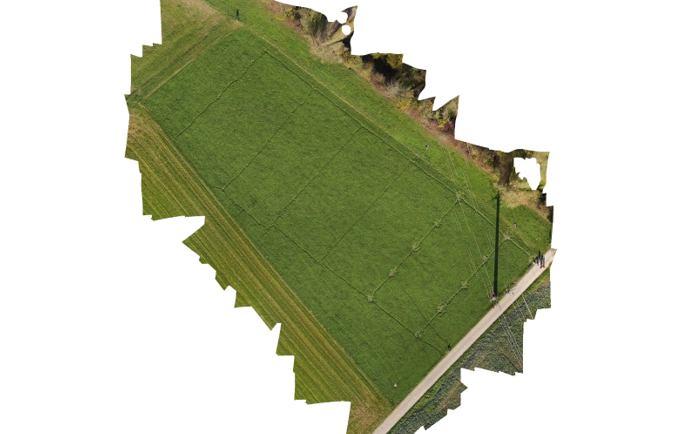Mitigating of Macro- and Micro-Plastics in Agriculture Soils using Hyperspectral Imaging (MIRACLE)
The Institute of Biomass and Resource Efficiency FHNW recently successfully launched the SNF Practice-to-Science project Miracle. The results of the research will enable decision-makers from cantons, federal agencies, industry, environmental organizations and farmers to make long-term predictions about the impact of plastics in the environment using simple and effective means.
In the picture - drone shot of the sampling sites
The presence of microplastics (plastic particles <5 mm, MP) in soils is a growing concern. Microplastics can pose a threat to soil ecosystems and freshwater, and potentially to human health. In recent years, several studies have reported the presence of MP in treated tap and bottled water, raising concerns about the potential impact of MP in drinking water on human health. MP have been widely detected in aquatic environments, but their occurrence in soil ecosystems remains largely unexplored and is based only on estimates. One of the main obstacles to obtaining quantitative information is the lack of standardized techniques to accurately and cost-effectively determine and map MP distribution in soils and aquatic environments. Miracle's key research objectives are :
- To develop rapid, accurate, and cost-effective methods for detecting and investigating the fate of microplastics in agricultural soils based on hyperspectral imaging combined with machine learning and artificial neural networks for pattern recognition;
- To transfer the technology to unmanned aerial vehicles;
- To conduct laboratory studies to determine the mechanism by which MP can leave agricultural land and the risk they pose to humans or animals in nearby areas.
Project duration: 3 years
Funding instrument : Practice-to-Science
Amount awarded : 600,000 CHF
More information

